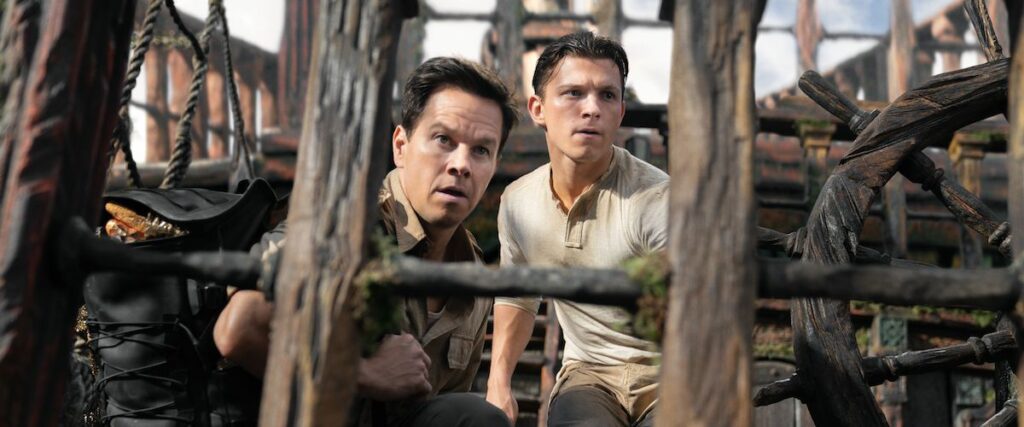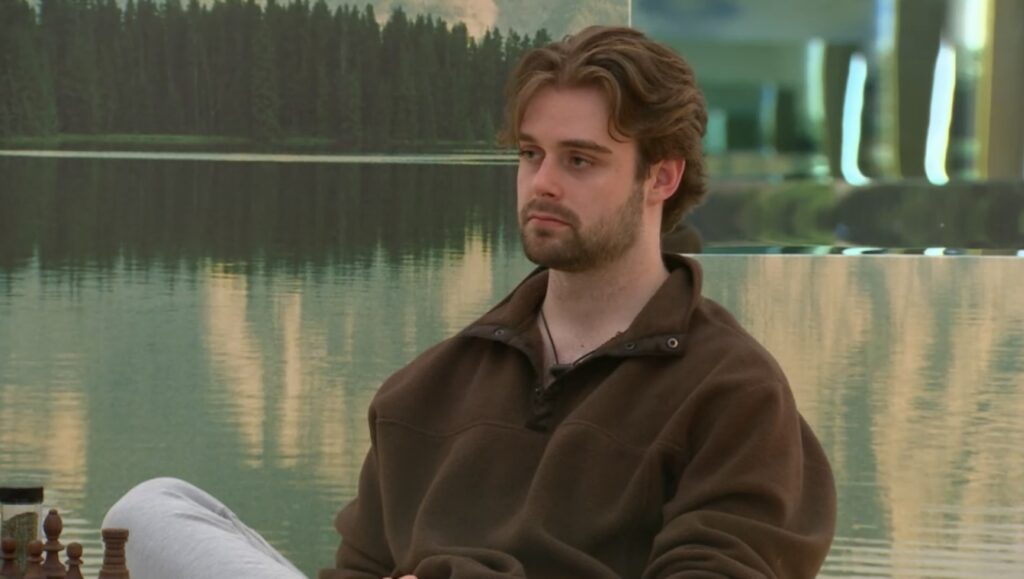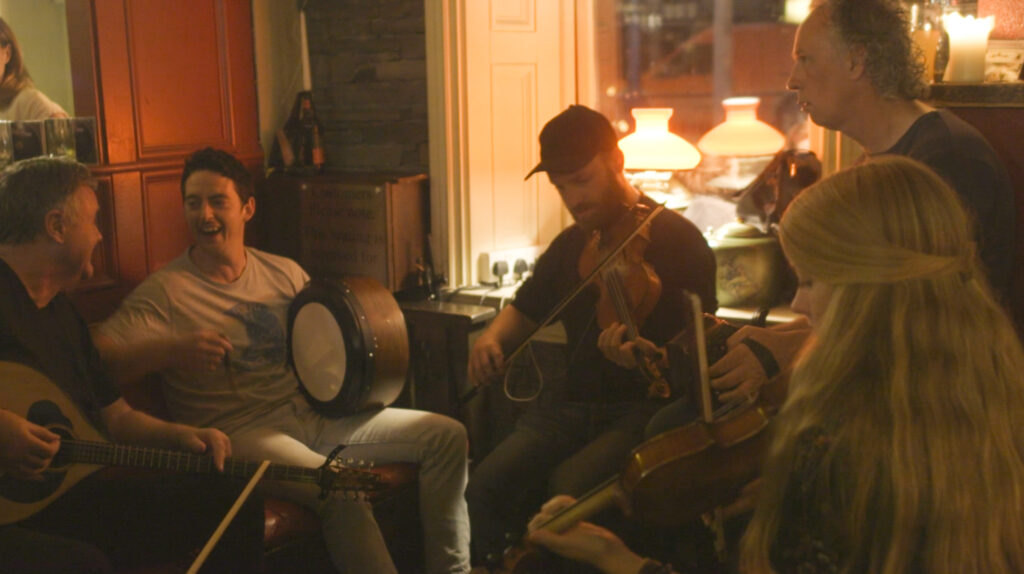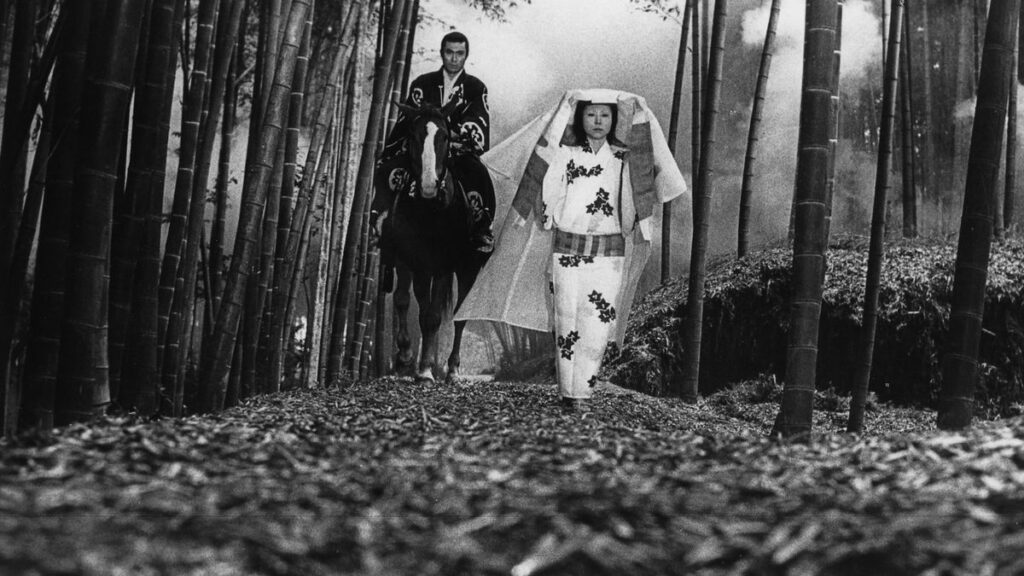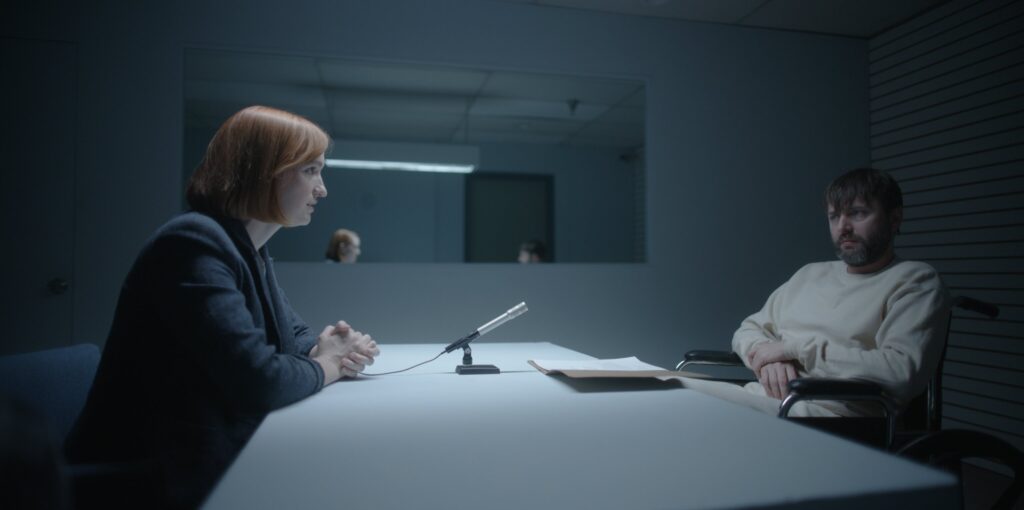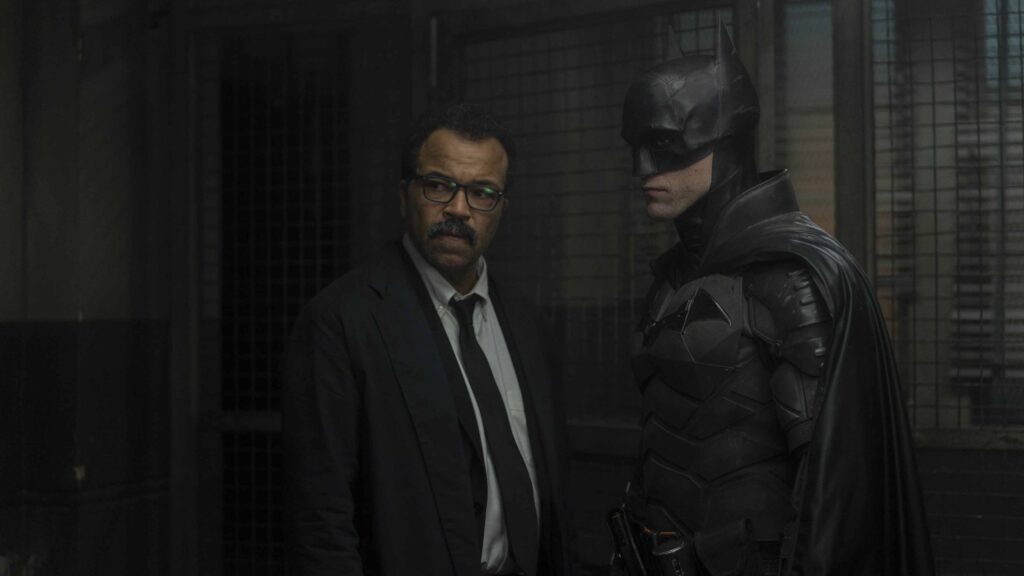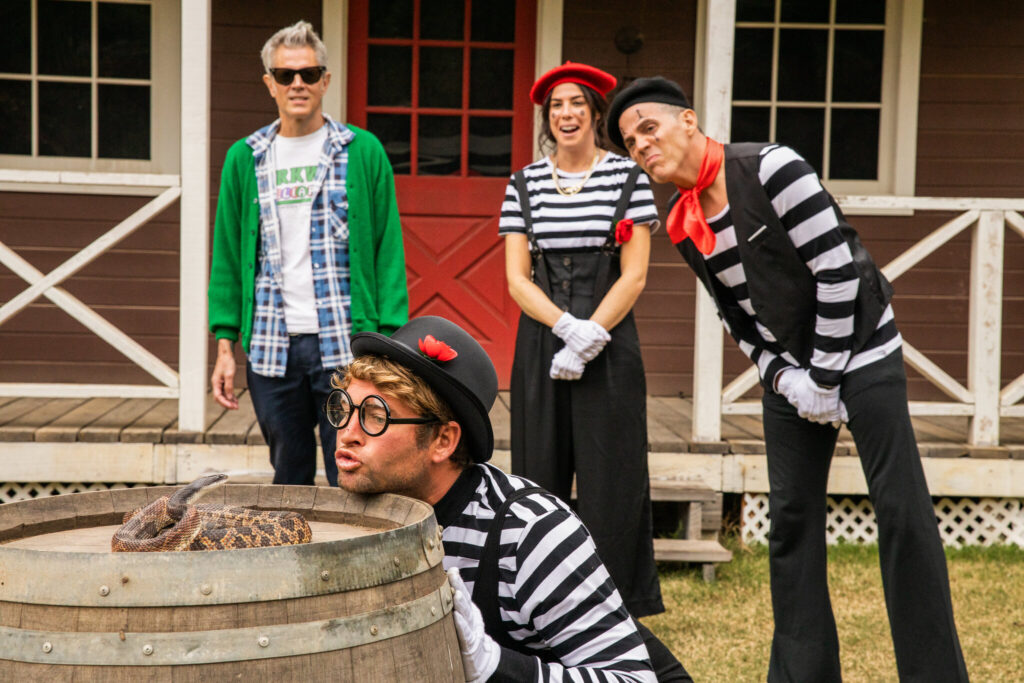Uncharted succeeds in spite of its laughably awful script
Written by Ian Thomas Malone, Posted in Blog, Movie Reviews, Pop Culture
A film like Uncharted is not really designed to spark broader conversations about the nature of entertainment. Based on the long-running adventure video game franchise of the same name, it is certainly fair to label the whole affair as a cash grab designed to appeal to fans of both the series and of superstar lead actor Tom Holland. There’s something more at stake for the action genre as a whole in this era defined by massive budges and connected universes.
The film is largely a paint-by-number swashbuckler that borrows heavily from 90s genre tropes. Nathan Drake (Holland) is a skilled pickpocket desperate for news of his long-lost brother Sam (Rudy Pankow), the two separated at an orphanage at an early age. Savvy fortune hunter Victor “Sully” Sullivan (Mark Walhberg) quickly enlists Nathan’s help in locating the lost treasure of Ferdinand Magellan, both displaying a knowledge of history that highlights their proficiency at reading half a Wikipedia page.
Nathan and Sully are joined in their quest by Chloe Frazer (Sophia Ali), a fellow thief with an arsenal of one-liners and a weird backstory with Sully. Santiago Moncada (Antonio Banderas), a spoiled heir desperate for treasure, and his chief enforcer Jo (Tati Gabreille) supply the necessary cartoon villainy that every globe-trotting treasure hunt needs. There are plenty of predictable character twists that anyone can see coming from a mile away, but the actors all showed up to engage in earnest to bring a semblance of seriousness to their one-dimensional roles.
The laughably atrocious screenplay is perpetually buoyed by the film’s tight pacing and strong cast chemistry. Though it often seems to have happened completely by accident, Uncharted manages to be a pretty entertaining summer action flick. It’s not good, but it’s too fun to be bad.
Other actors might try and phone in their performance when faced with a script as clunky as this mess. Holland is his earnest self, doing his best to give the audience a fun time, playful banter with Wahlberg and Ali that does grow on you after a while. Drake does not seem terribly likely to be Holland’s next blockbuster vessel, but the role does showcase his A-list credentials. Uncharted is a good testament to the power of a strong leading man in today’s franchise-heavy age.
Director Ruben Fleischer deserves a lot of credit for his technical skills. The special effects won’t necessarily blow anyone away, but Fleischer’s camera work does elevate the material above plenty of other video game adaptations. The narrative could do without about ten minutes off of its 116-minute runtime, but the pacing does have a way of keeping things fresh in a way that the script never seems to understand.
Uncharted is overly content in its commanding mediocrity, but there’s a certain joy in watching the film that’s hard to ignore. Some lines and plotholes are so terrible that they make you laugh out loud. The action sequences are completely over the top in their resounding absurdity. Fleischer’s work begs to be watched on the biggest screen possible, a throwback to the days when visiting the cinema felt like something you did just to sit in those comfortable seats and turn your brain off. Uncharted should have been a better film, but it’s too enjoyable not to recommend.





